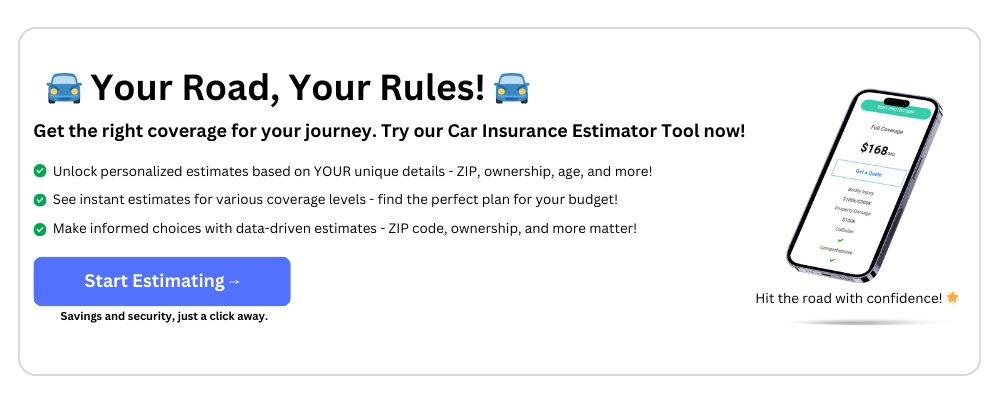Buying a car can be expensive, but it is an essential purchase for most of us. Without a car, we would find it difficult to get around, especially in cities where public transportation is not a great option.
Because cars are so costly, it is important to protect your investment. Car insurance can help you do so, but what happens if your car is in a bad wreck?
In some states, the fate of your car – and whether it is totaled – will depend on something known as a total loss threshold. In other places, a total loss formula will apply.
What is a total loss threshold?
Some states have a total loss threshold. In these states, insurers will declare a vehicle totaled if the cost to repair it exceeds the state’s established percentage of the car’s actual cash value.
So, if the state’s total loss threshold is 75%, an insurer will declare a car totaled when the cost to repair it exceeds 75% of its value.
In other words, if the repair cost exceeds the total loss threshold, the insurer will declare the car a total loss and pay the policyholder the actual cash value instead of repairing or replacing the damaged car.
The threshold percentage varies by state. For example, a car with damage totaling 75% of its value is totaled in New York but considered repairable in Texas, where the threshold is 100%.
Not all states have total loss thresholds. In some states, totaling a car is based on a total loss formula. In this scenario, the insurer compares your vehicle’s actual cash value (ACV) to the repair cost minus the vehicle’s salvage value.
If this number equals or exceeds your vehicle’s ACV before it was in an accident, your car will be totaled. But if the number is lower than the ACV of your car, the insurer may decide to repair it.
Total loss thresholds by state
The total loss thresholds vary by state and every state has its own rules about when a car should be declared totaled. In some states, declaring a car totaled might not take much damage, especially if you drive an older model.
Here are the specific thresholds for each state:
| State | Threshold |
|---|---|
| Alabama | 75% |
| Alaska | TLF |
| Arizona | TLF |
| Arkansas | 70% |
| California | TLF |
| Colorado | 100% |
| Connecticut | TLF |
| Delaware | TLF |
| Florida | 80% |
| Georgia | TLF |
| Hawaii | TLF |
| Idaho | TLF |
| Illinois | TLF |
| Indiana | 70% |
| Iowa | 70% |
| Kansas | 75% |
| Kentucky | 75% |
| Louisiana | 75% |
| Maine | TLF |
| Maryland | 75% |
| Massachusetts | TLF |
| Michigan | 75% |
| Minnesota | 80% |
| Mississippi | TLF |
| Missouri | 80% |
| Montana | TLF |
| Nebraska | 75% |
| Nevada | 65% |
| New Hampshire | 75% |
| New Jersey | TLF |
| New Mexico | TLF |
| New York | 75% |
| North Carolina | 75% |
| North Dakota | 75% |
| Ohio | TLF |
| Oklahoma | 60% |
| Oregon | 80% |
| Pennsylvania | TLF |
| Rhode Island | 75% |
| South Carolina | 75% |
| South Dakota | TLF |
| Tennessee | 75% |
| Texas | 100% |
| Utah | TLF |
| Vermont | TLF |
| Virginia | 75% |
| Washington | TLF |
| West Virginia | 75% |
| Wisconsin | 70% |
| Wyoming | 75% |
How do you calculate a total loss threshold?
Calculating a total loss threshold is relatively straightforward.
For example, if the state has a total loss threshold of 75% and a vehicle worth $5,000 needs repairs of $4,000, you would divide $4,000 by $5,000 and get 80%. That would be enough to total the car.
There are two ways to determine the total loss thresholds used by different states:
Simple percentage threshold
It refers to the percentage of the vehicle’s ACV that the cost of repairs must reach for the car to be declared a total loss. Some states use the simple percentage threshold instead of total loss formula, or TLF. Simple percentage thresholds range from 60-100%, depending on your state.
Total loss formula
The total loss formula refers to the calculation used by insurance companies to determine whether a damaged vehicle should be declared a total loss. The formula typically compares the cost of repairs plus the salvage value to the vehicle’s actual cash value (ACV). If the cost of repairs exceeds a certain percentage, the car is deemed a total loss.
Your vehicle is totaled if:
Repair costs + salvage value > actual cash value
If a car is worth $10,000, its salvage value is $2,000 and the cost of repairs after an accident is $9,000, the insurer would declare the vehicle a total loss because the repair costs exceed the TLF.
This means the insurer would pay the car’s fair market value minus any deductible.
Why do some states use a percentage instead of the total loss formula?
Some states use a percentage threshold to determine whether a vehicle is considered a total loss after an accident instead of using the total loss formula. The car might have hidden damage that will cost even more.
States can prevent potential danger on the roads by totaling cars whose repair costs exceed a certain percentage of the vehicle’s value. This helps ensure that unsafe vehicles with significant damage do not remain in operation, keeping people safe.
Most states that use a total loss formula set the percentage between 70% and 80% of the car’s value. This also applies to vehicles damaged by flood. These vehicles have lower threshold percentages and some states even have different total loss formulas for flood-damaged vehicles.

What happens if your car is declared a total loss?
Once your car is totaled (and you are not fighting the decision), your insurer will most likely require you to do the following:
- Remove the license plate
- Remove all personal items
- Give your keys to your claims adjuster
- Notify your lender if you have a loan or lease on the vehicle
- Ask if your policy includes rental car coverage
If you are in an accident that results in your car being totaled, your rates will go up. One of the best ways to bring them back down is to compare insurance quotes. Insurers rate risk differently, so premium quotes can vary dramatically.
What percentage of damage totals a car?
The percentage of damage that totals a car varies by state and insurer. In some states, a vehicle may be considered a total loss if the repair cost exceeds 75% of its actual cash value (ACV). In other states, the threshold may be as low as 60% or as high as 100%. A vehicle is generally considered a total loss when the repair cost exceeds its value and is deemed extremely expensive.
How do adjusters determine if a car is totaled?
A claims adjuster will examine the car and calculate the cost of repairs and your car’s pre-accident cash value, considering make, model, year, options, mileage and condition. If the vehicle meets the required threshold, it will be totaled.
While state law may mandate total-loss thresholds, they rarely come into play. Even though insurers must total the cars over these thresholds, they can and do total vehicles under the threshold.
“Insurance carriers that operate in multiple states have an internal mechanism for assessing total-loss levels to be consistent regardless of where the vehicle is located,” says Tony Rached, principal owner of Lira VC in Georgia.
Can I keep my car if it’s totaled?
Yes, keeping your car if it’s totaled is generally possible. But this might not be the best option for you.
If you decide to go this route, your insurer will pay you the car’s actual cash value minus its salvage value and any deductible you owe. The car will then be yours to keep, but you will need to bring it up to a state of repair that makes it safe to drive. The fact that the car was totaled indicates that it needs major repairs, which are often costly.
In addition, the car might have hidden damage that you do not suspect. Once you or a mechanic discovers this damage, you must make additional repairs, which adds to the cost.
Finally, totaled cars can be more difficult to insure. Finding collision and comprehensive coverage for such a vehicle can be incredibly challenging.
What happens if your car is totaled and you have gap insurance?
If you have gap insurance and your car is totaled, your gap insurance policy will help cover the difference between the actual cash value of your vehicle and the remaining balance on your auto loan or lease.
When a car is totaled, the insurance company determines its actual cash value (ACV) based on age, mileage, and condition. If the ACV is less than what you owe on your car loan or lease, you will be left with a gap. This is where gap insurance comes in. It is designed to cover the gap so you don’t have an unexpected financial burden. The policy will pay the difference between the ACV and your outstanding balance up to the policy limits.
FAQ: Total loss thresholds
How much is the insurance payout for totaled cars?
The amount that an insurance company pays for a totaled car will depend on several factors, such as the vehicle’s make and model, the car’s age and condition, the extent of the damage, your state and the insurance coverage limits. If you have collision coverage, your insurer will typically pay you the car’s actual cash value (ACV), minus any deductibles if it is deemed a total loss.
How does total loss affect car insurance rates?
A total loss insurance claim can significantly impact your auto insurance rates. The policyholder may see an increase in their premiums because their insurer may see them as a higher-risk driver. According to CarInsurance.com data, an at-fault bodily injury accident can increase your insurance coverage rates by 58%, on average.
The exact rates vary based on individual factors. Car insurance companies use a variety of factors to determine rates, including the policyholder’s claims history, driving record and credit score.
Can you negotiate a total loss settlement?
Yes, you can negotiate a total loss settlement with your insurance company if you believe their offer is too low. To negotiate, you should gather evidence to support your case, such as recent maintenance receipts or if you have installed any new stuff in your car. You can also hire an independent appraiser to assess the value of your totaled vehicle.
Once you have this evidence, you can present it to your insurer and negotiate for a higher settlement.





